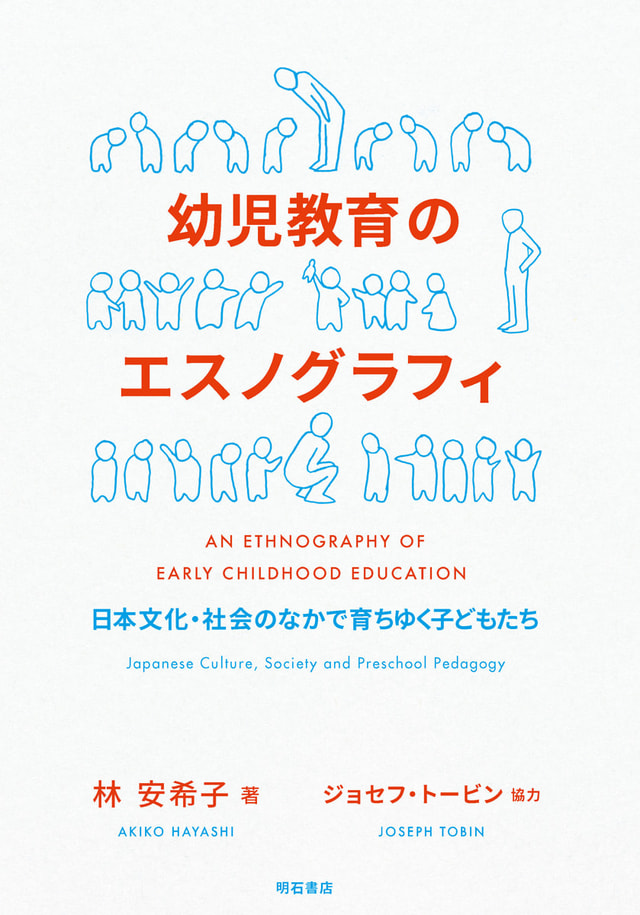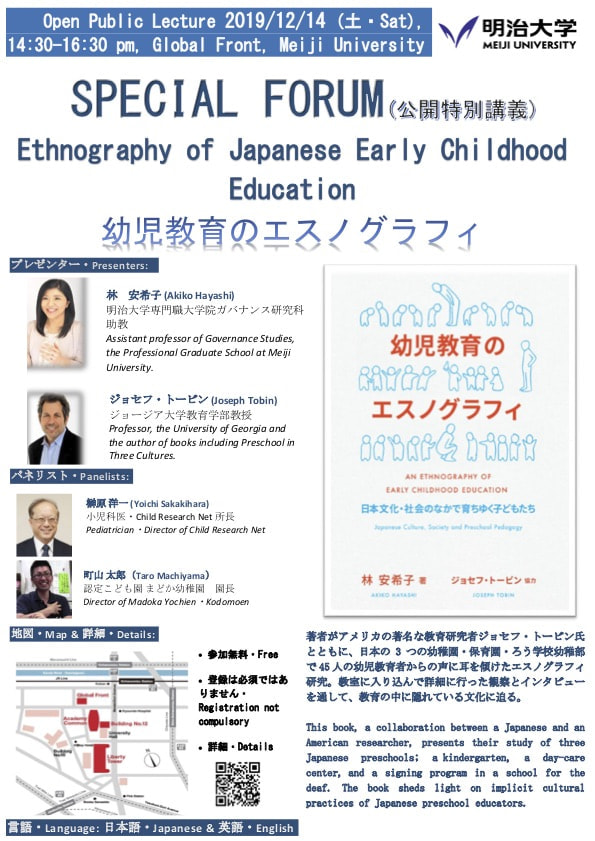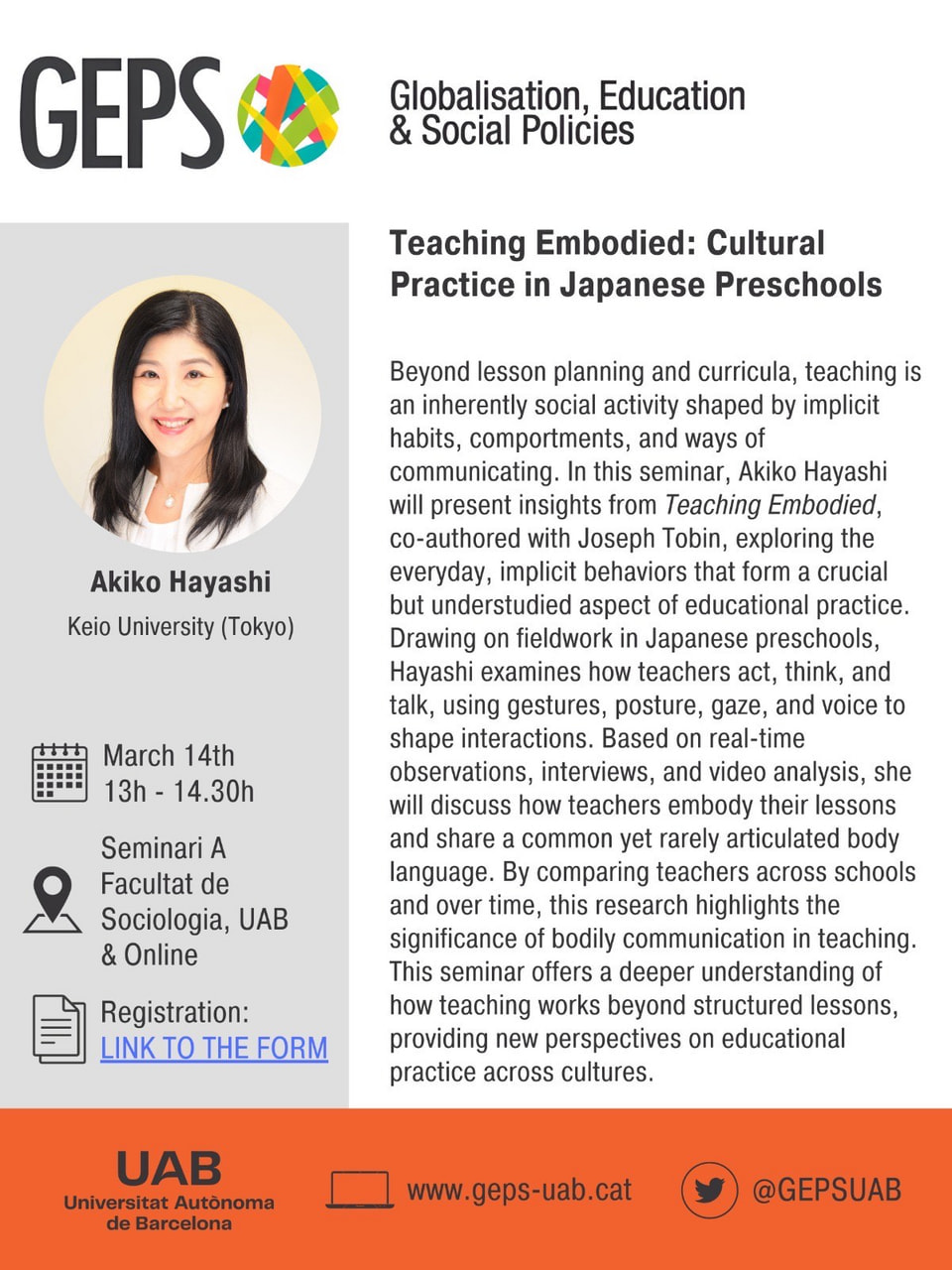社会性や情緒の発達/Social-Emotional Development
幼児教育のエスノグラフィ An Ethnography of Early Childhood Education

日本の幼稚園・保育所に通う子どもたちは「日本人らしさ」を学んでいるのでしょうか。先生たちは「日本人らしい教え方と考え方」を持ち合わせているのでしょうか。この本は、どのように日本の幼稚園・保育所が子どもたちの社会性や情緒の発達を支え、社会への足場かけとしての役割を果たすのかに着目しています。
3つの幼児教育現場(まどか幼稚園・小松谷保育園・明晴学園)を丁寧に観察し、45人の保育者の声に耳を傾け、それらを文化人類学の視点から詳細にまとめています。インタビューからの多くの引用と約200枚の写真が含まれています。
いかに日本の子どもたちが日本の幼稚園・保育所において「日本人」に育ちゆくかについてのストーリー、皆さん、読んでみませんか。
読者の声:
日々の保育の一場面を詳しく掘り下げて、意味を見いだしてもらえたことは、とても興味深く、改めて自分の保育を振り返るきっかけにもなりました。保育者として、このような本が出版されるのは、とても嬉しいです。私だけでなく、日本の他の幼稚園の先生にも同じように感じて頂けるかと思います。
まどか幼稚園 幼稚園教諭(本書登場人物)This book focuses on defining key characteristics of Japanese Early Childhood Education, including the meaning of teaching, how Japanese preschool teachers teach with their bodies and how Japanese preschools support children’s social-emotional development.
This book presents findings from a video-based study of observation in 3 Japanese preschools (a kindergarten, a day-care center, and a signing program in a school for the deaf) and of interviews with 45 preschool teachers. The book, through description and approximately 200 images, sheds light on implicit cultural practices of Japanese preschool educators from an anthropological perspective.
I would like to invite you to read the story of how Japanese children become Japanese at preschools in Japan.
Reader’s voice:
It is very interesting to see how the author goes deep into a typical practice in everyday life in preschool. I also appreciate that the author found meanings in our practices. That gives me a chance to reflect my own practices. As a preschool teacher, I am happy to have this book in print, and I believe other preschool teachers in Japan also would feel the same.
Madoka Yochien, Preschool Teacher (a featured teacher in the book)

